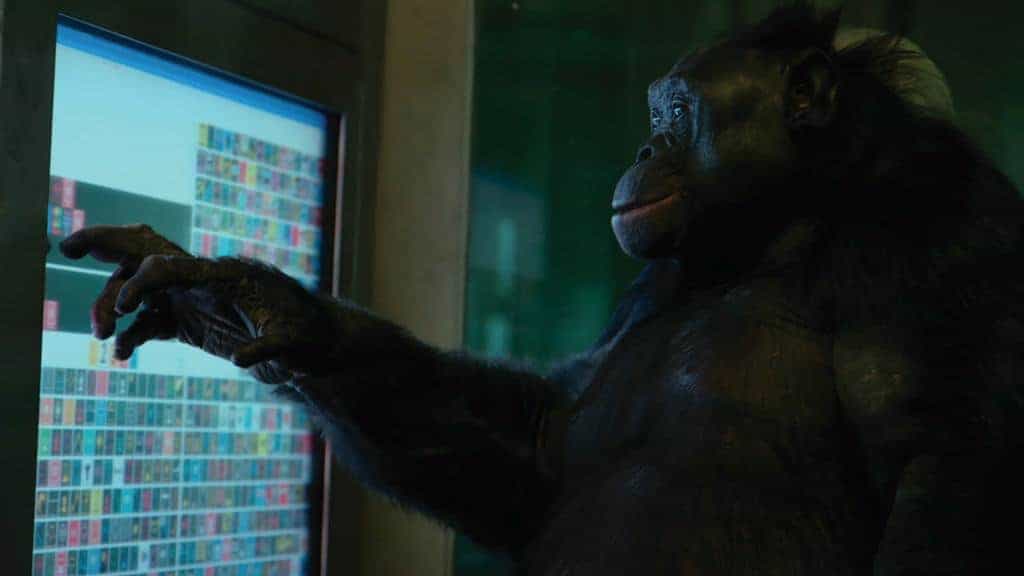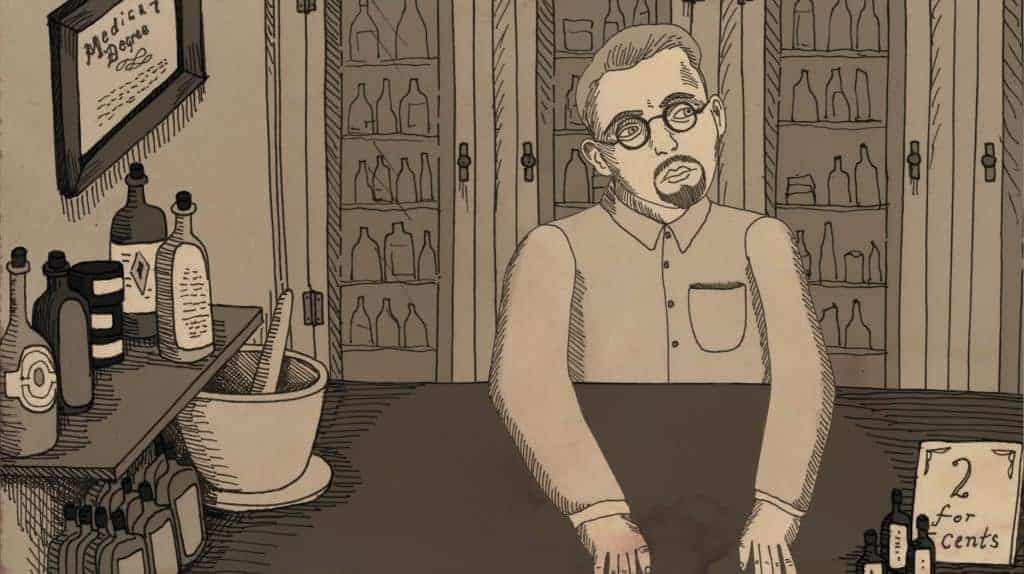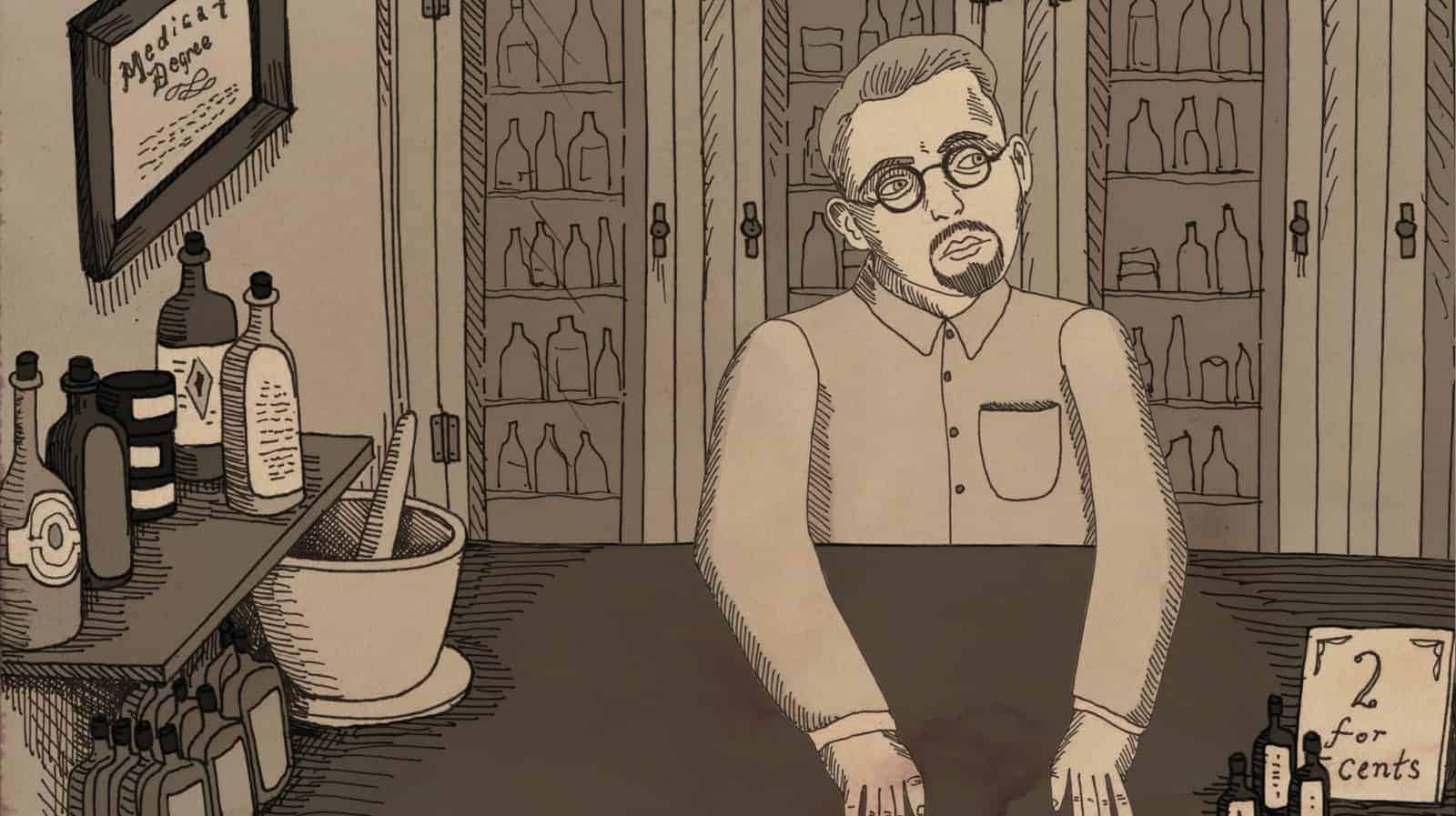We take a look at the films in contention for the Alfred P. Sloan Prize, the jurors, and make some predictions.

Every year since 2003, the Sundance Film Festival awards the Alfred P. Sloan Prize to a “feature film that focuses on science or technology as a theme, or depicts a scientist, engineer, or mathematician as a major character.” Most years, it’s relatively slim pickings: science at the movies is still seen as a relatively niche topic. Even if the film awarded is sometimes a baffling choice, it is saying something that last year’s festival had several serious contenders. These included, Michael Almereyda’s Experimenter, Jennifer Phang’s Advantageous, and the documentary Racing Extinction. Last year’s prize went to Stanford Prison Experiment, an inferior film that’s technically about social science.
A jury composed of filmmakers, film professionals, and scientists sees films that might fit the bill, usually pulled from an unofficial shortlist, and then decides which film to award. The criteria used to pick the winner is something of a mystery, perhaps because the prize gets virtually no press coverage outside of which film happened to win. Past winners include Andrew Bujalski’s mockumentary Computer Chess about chess nerd culture, the romance Adam about a man with Asperger’s, and Shane Carruth’s Primer, which was a sci-fi film with enough technical prowess to wow even the scientifically trained. With the exception of Werner Herzog’s Grizzly Man, the award has always gone to a narrative feature — usually a science fiction film.
This year’s jury includes a few people who seem like a perfect match for the task, like engineer-turned-filmmaker Shane Carruth (who won the Sloan in 2004) and USC’s Professor Clifford Johnson who specializes in science outreach and penned a graphic novel. Rounding out the group’s scientific credentials is Harvard Medical School’s Professor of Genetics Ting Wu. Although two-time Sloan Prize winner Mike Cahill may seem like the perfect juror, his recent film I, Origins, which took home the prize in 2014, was both one of the best depictions of scientists I’ve ever seen on screen. And finally, there’s actress Kerry Bishé, whose qualifications seem to consist of having played a scientist on Halt and Catch Fire.

The 2016 Sloan Prize shortlist includes both films that seem made for the prize, and films so tenuously connected that I was surprised to see them in contention. Sight unseen, I’d say this year’s top contenders are Werner Herzog’s doc Lo and Behold: Reveries of the Connected World about how the internet has changed the world, and D.A. Pennebaker’s and Chris Hegedus’ documentary Unlocking the Cage about an animal rights lawyer fighting to give animals basic protections. I wouldn’t count out Penny Lane’s NUTS! either, which is a smart exploration of how cultural stereotypes about scientists allowed a charlatan to manipulate an entire state. Although only sixty minutes, James Redford’s Resilience may be the most obviously science-related candidate, as it tracks brain science research on childhood trauma. But the Sloan Prize hasn’t been awarded to a documentary since 2005 for Herzog’s Grizzly Man.

Among the narrative films, Operation Avalanche, a mockumentary about the “fake” Apollo moon landings, seems like the strongest contender. On the other hand, the jury has a history of favouring films with science fiction elements, which explains the inclusion of Sleight and Complete Unknown. I’m not even sure how the rom-com How to Tell You’re a Douchebag or the family drama Captain Fantastic made the shortlist — presumably one of the characters has a job in science? Embrace of the Serpent seems like a bizarre choice: it took me minutes to remember that the explorers in the film are naturalists since there’s virtually no mention of their actual work.

It’s hard to discern which films have the best shot at the Sloan Prize’s goal because the jury tends to make its decisions based on whether it’s an entertaining movie, not whether it’s a film that is a good science movie. Even what makes a good “science movie” is hard to define. Is it a film that promotes scientific literacy or one that makes scientific concepts accessible? Or is it a film that breaks down cultural stereotypes about science or scientists? Will the New Frontier films Notes on Blindness and The Illinois Parables be too weird for the jury’s taste, especially if the Sloan Prize’s goal is to promote films with mainstream appeal? Do films like Gleason, Tickled, Audrie & Daisy, and When Two Worlds Collide have subjects too obscure to win? Will the worryingly titled How to Let Go of the World (and Love All Things Climate Change) get the prize for timeliness of subject matter even if it’s not really all that much about science?
Given the short timeline for the jury to see the films — awards are announced Tuesday afternoon — will they even consider films not on the shortlist? The virtual reality film Leviathan, about an underwater research project, certainly deserves consideration. And the Day One film Sky Ladder, with its gunpowder art and environmental activism, seems like it has a greater claim to eligibility for the prize than many of the films on the unofficial shortlist. Over the course of the next 10 days, I’ll be seeing the films in contention and reporting on which films I think deserve to win.

